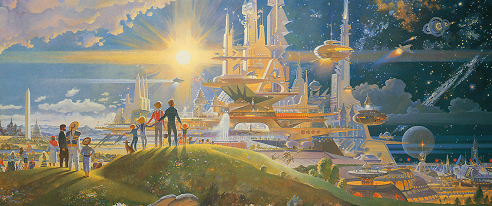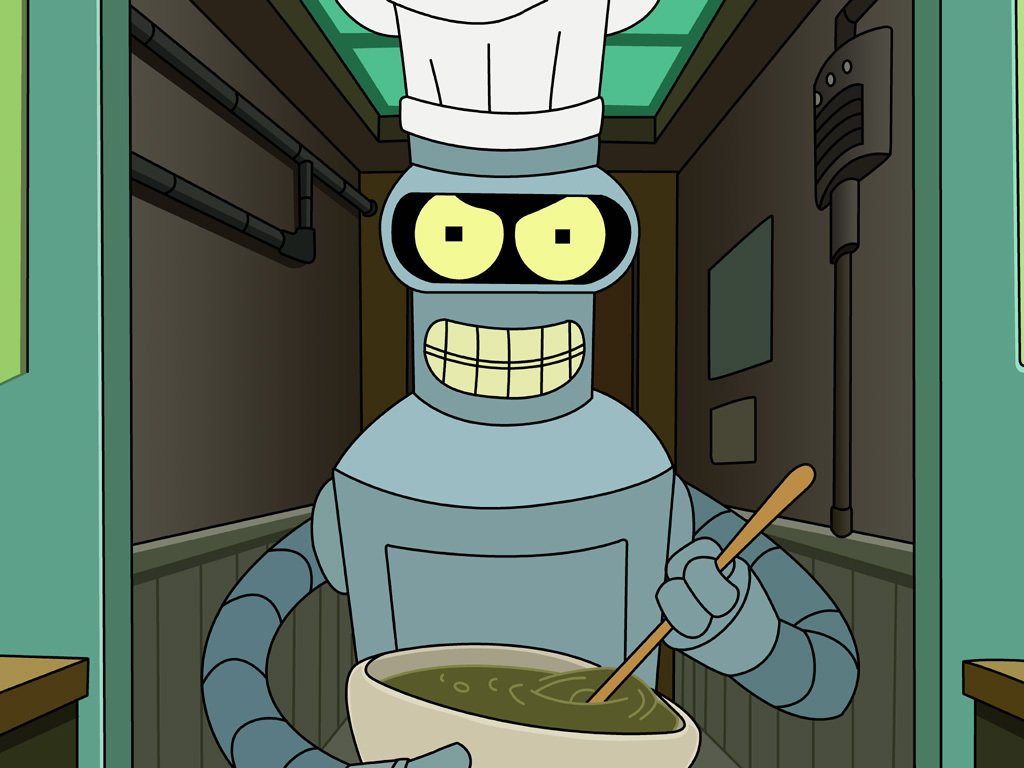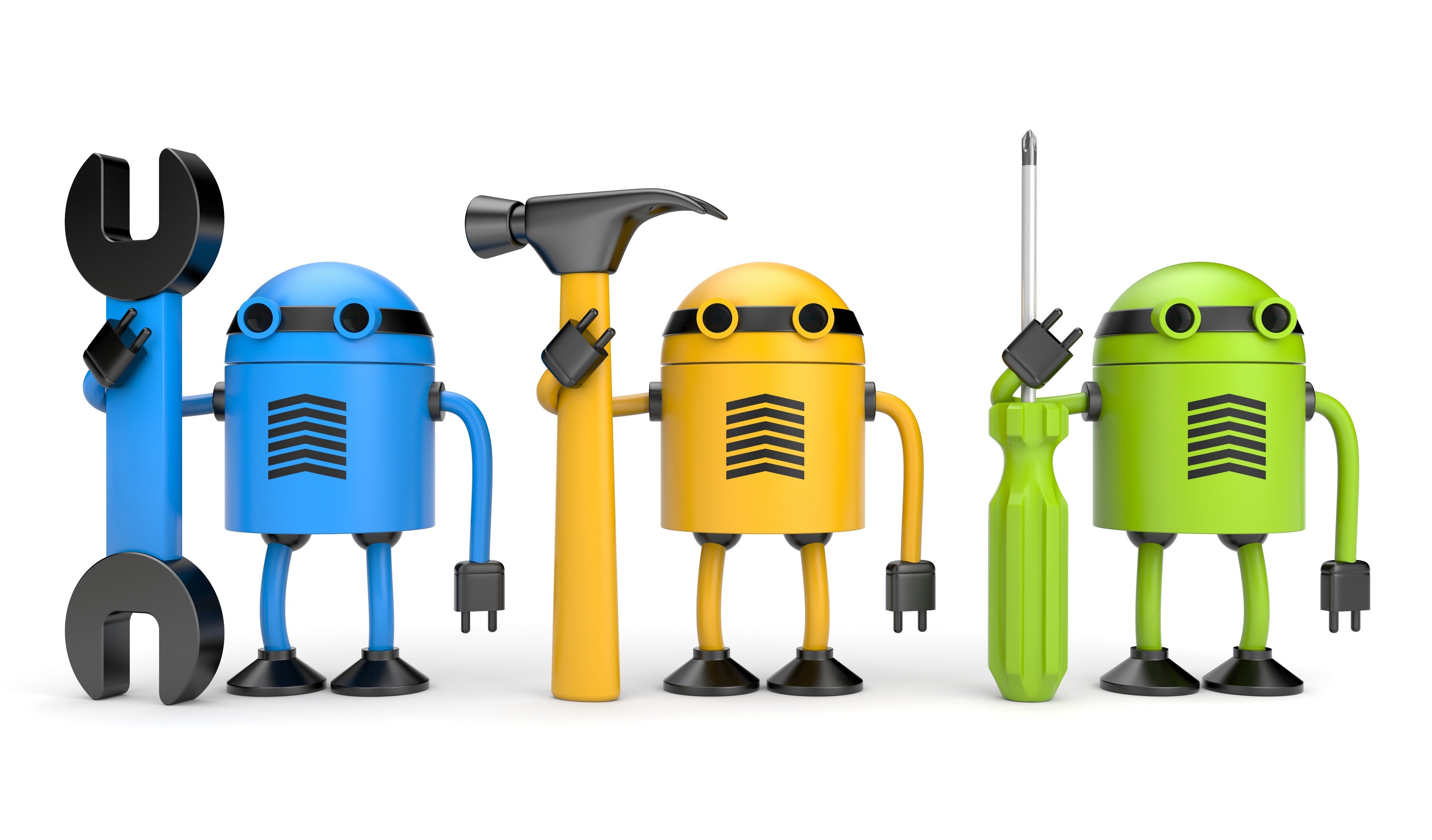
Basic Income is perceived by many to be a socialist utopia fundamentally flawed due to economic incentives that encourage consumption without production. What if basic income could be compatible with the selfish profit seeking behavior of free individuals. What if basic income could be implemented without taxation and without price inflation? What if basic income were to be a necessary precondition for securing life, liberty, and property in an increasingly automated industrial society? These are the questions I plan tackle in this article.
Property Rights
Property rights are the cornerstone of a peaceful society. Without property rights there is no basis to resolve disputes aside from violence. Furthermore, without property rights there is no incentive to generate a profit. The tragedy of the commons is the logical outcome anytime society attempts to ignore the necessity of property rights. If we are to consider any concept for basic income, then it must be fully compatible with the concept of property rights.
The Means of Production
The means of production includes natural resources and the tools (factories) that convert resources into the products we all demand. If you don’t own the resources or the factories then you don’t own the means of production. We all own our labor, skills, and knowledge as inalienable means of production.
All of society benefits when technology enables us to produce more with less. Profit is the result of converting natural resources (and lower level products) into higher level products of higher value. Profit shows up as an increase in the resources owned by the producer.
Free market competition naturally selects for the most profitable activities and those that are not profitable end up owning fewer and fewer resources. The process of natural selection is what directs the scarce resources of society toward their highest use and minimizes resource utilization that lowers our global standard of living.
The value of Labor
Human labor has value because of its ability to generate a profit by converting resources of lower value into resources of higher value. Not all labor is equally valuable because not all individuals are equally skilled nor gifted with equal ability.
Automation increases the virtual supply of labor and therefore reduces the market value of unskilled labor. Eventually, this process causes unskilled labor to be valued below the cost of living.
Market value of Life
The free market solution (i.e. non-violent and voluntary) is for unskilled labor to rely upon donations from those who value the life of another individual more than they value an incremental increase in their own wealth. Absent voluntary donations, someone who is unable to produce more value than they consume will starve (or live in extreme poverty).
A starving individual will resort to violence and will not be concerned with the philosophical position that they should just die. A libertarian would end up killing the starving individual by claiming self defense. All of a sudden philosophy is in direct contradiction of biological imperative to survive at all costs.
From a purely darwinian perspective, letting these individuals starve would probably advance the species and dramatically increase the standard of living of those who remain. From a human conscience perspective, watching someone starve is very painful. It is the conflict between our own selfishness and our natural empathy that is the root of the socialism / free market debate.
It is the pain of watching others suffer that motivates free market donations to help the poor. However, if those who suffer are out-of-sight and out-of-mind then the pain is numbed. This ultimately means that a capitalist, voluntary, and free market society will necessarily allow the unproductive individuals to die, likely violently as they fight for survival.
Living without Producing
The issue at stake is whether or not a person has a right to consume resources without producing an equal or greater quantity of resources. Why would anyone produce anything if they had all of the food, shelter, and clothing they need to live? Why should anyone be required to support another with the fruit of their own labor?
There is a very real threat to all of society if the total level of consumption exceeds the level of production and prevents necessary investment into future production. In effect, the amount of free-loading an economy can tolerate is fundamentally limited by the amount to surplus production. In a shrinking economy (due to famine, war, resource exhaustion, over consumption, etc) there is no surplus production. In such an economy those who cannot produce must be cut off even if it means death; otherwise more people will die in the future due to the declining means of production.
The moral conscience of the free market capitalist is repulsed by the idea of partially enslaving one individual in order to support the life of another individual. No one likes a roommate who makes a mess, eats your food, and watches TV all day without lifting a finger to help around the house or pay for anything. It doesn’t matter if they are capable of helping or not, they are a burden and lower your own standard of living.
Rent Seekers

What if your roommate had an robot capable of cleaning, cooking, and generating enough income to cover rent? This roommate would be just as slovenly, lazy, and unproductive as before with one small difference: he has productive property. The possession of productive property entitles this individual to “produce nothing himself”.
Economic theory would dictate that the price people would be willing to pay for such a robot would equal the net present value of the future wealth produced by this robot. Therefore, the fact that your roommate owns the robot is proof that he previously produced wealth and is now living on his savings. It is no different than earning interest on money and using the money to hire a maid, cook, and pay rent
Now imagine a situation where the cost of the robot is prohibitively high such that only a few can afford it. Once they purchase the robot the rate at which their wealth grows accelerates relative to everyone who was unable to purchase a robot. Eventually they will accumulate enough wealth to purchase an even bigger robot that far fewer can afford.
Economies of scale cause large concentrations of wealth to be far more productive and profitable than widely distributed capital. You can get much more done paying one software engineer $100K per year, than paying 100 thousand engineers $1 per year. This is the power of concentration of capital.
The logical outcome of this process is a concentration of capital in the hands of a few. With the concentration of capital is the concentration of the means of production. The masses will starve due to their inability to produce value competitively.
Owning the Means of Production
The fundamental principle upon which basic income can be derived is ensuring everyone owns an inalienable share in the means of production. If everyone owned a robot capable of producing what they need, then there would be no conflict between basic income and free markets.
The challenge is how do we give everyone a robot? What do we do when someone is born?
Let's assume that each robot is capable of replicating itself at a similar rate to human reproduction. On this basis, each individual would have the ability to give a robot to his children. Alternatively, assume a world with a stable population. Each time someone dies, they give their robot to someone who was born.
Moving beyond Magic Self Replicating Robots

The entire free market can be viewed as the collective interaction of people and “economic robots of different types”. We don’t need everyone to have their own “personal robot”, if everyone can own a share in a factory or global resources. If everyone owned a share in the means of production, then a basic income would be the natural outcome.
Capital could be heavily concentrated, but ownership and therefore the share of the productive outputs would be heavily distributed.
Tragedy of Private Property
If we were to give everyone an equal share in the means of production today, then tomorrow half of the population would have sold their share to increase their consumption today beyond what their share could produce that day. These people would be poor and looking for another handout.
The capitalists among us would say, “let them die, they sold their life for hookers and blow”. The bleeding heart socialists among us would say, “we cannot let them die from their own stupidity! Give them another share of the means of production!”
If the capitalists win, those who consumed their seed corn would die while those who remain grow wealthier. If the socialists win, then all of society will grow poorer as the means of production is consumed. Both ways result in death and poverty of a large percent of the population.
Inalienable Property Rights
What if everyone held a share of the means of production, but they were unable to sell this share? This would be an extension of their ownership of their own labor, skills, and knowledge. It would be like everyone earning interest on money in the bank, but being unable to spend the principle.
Under this model each individual would have income equal to the productivity of their “virtual robot”, aka share in the economy. Each year the robot becomes more efficient and productive the income increases. In years where the robot is less productive, the income would necessarily have to decrease.
In order for the robot to grow (and become more efficient), some of its productive output would have to be reinvested into growing the robot. Maximum growth would occur if there was 100% reinvestment, but that would mean everyone would starve. We do need to consume some resources to live!
If each individual was free to choose whether to invest in the robot or to consume for today, then over time ownership of the robot would become concentrated in the hands of the savers. That isn’t necessarily a problem though, because the consumers smaller slice of a larger pie would still be bigger than their previous equal slice of a smaller pie. For example, today’s poor live better than the kings of 300 years ago.
Implementing Basic Income via Monetary Policy
Money is effectively a share in the means of production. If the economy was a company, money would be its stock. Each individual upon birth would receive an inalienable endowment equal to the money supply divided by population. This money would be placed into a savings account from which only interest may be withdrawn. On death, the savings account principle would be destroyed. This would create an natural monetary inflation / deflation rate equal to the change in population.
Each month money held in savings accounts would earn interest paid for by printing money at a rate that maintains price stability of a basket of necessities defined by the consumption habits of the average individual. If the cost of this basket of consumption increases, the interest rate will fall (reducing basic income thereby reducing demand and lowering prices). If the cost of the basket falls, then interest rates will rise (increasing income and therefore demand and prices).
As the economy grows more productive, everyone’s ability to consume grows proportional to their ownership of the means of production. If a drought causes food production to decline, then everyone will receive less interest due to the drop in production.
Any individual can “save for retirement” by investing in the means of production. This investment will earn interest at the prevailing rate and the principle could not be withdrawn. When the individual dies, their surplus savings would pass down to their children.
Economic Consequences
The first and most important economic outcome of this policy is that due to the lack of price inflation enforced by the monetary policy the currency could be a trusted unit of account over time. Any attempt to implement basic income with an inflationary currency would result in capital flight toward appreciating assets (gold, silver, and other less inflationary currencies).
A second outcome is that the rate of return earned by holding money in savings would equal the average productivity of the entire free market. In a world with a fixed money supply, this rate of return would show up as deflation (increase in the purchasing power of money). This means the economic consequences of the monetary policy should closely mirror those of an economy with a fixed currency supply.
Debt

One of the biggest challenges of basic income is that individuals can effectively sell their stake in the means of production by borrowing money today and using their basic income to pay the interest on the debt. If this were to occur then half of society would end up in debt and have no money left over for food, shelter, and clothing after paying the interest on their debt.
A society based upon these rules would have to exclude basic income from being a source of debt collection. A creditor would not be able to go after that money under any condition.
The Root Problem
The root problem that society faces is that many individuals will live beyond their means even if it ends up killing them. Take all of complex abstractions away, a farmer on an isolated island will die if he eats all of his seed corn rather than save for the following year. Society is filled with these kind of suicidal farmers.
Any implementation of basic income must protect against consuming societies seed corn. Capitalism does this naturally by allowing those who are that careless to die off. Socialism is either corrupted by centralized administrators or through allowing an ever increasing number of suicidal farmers to vote to increase todays benefits.
Basic Income is Possible
It is entirely possible to bootstrap a free market implementation of basic income that is decentralized and actively protects against consumption of the seed corn. For this to work a community of people must adopt a currency with a monetary policy that recognizes all individuals own an inalienable share of the means of production. If enough people were to adopt such a currency then society could function with an incorruptible distribution of the means of production.
Actual Results may be Less than Desired
Those who support the idea of a basic income start with a preconceived notion of what everyone “deserves” and then attempt to redistribute resources to achieve that effect. Under the system I propose I define what everyone “deserves” in percentage terms and allocate the productive capacity rather than the products produced.
Think of it as allocating the fishing rods rather than the fish. We may not be able to guarantee everyone a certain number of fish, but we can guarantee them a share of whatever fish are caught. We must simply ensure people don’t sell their ownership interest in the fishing rod!
Conclusion
Failure to implement a sound economic policy will result in increasing poverty and death as the value of unskilled human labor falls below the cost of living. Implementing overly generous welfare can and will take the entire economy down and result in even more death and destruction. Only a principled approach that is compatible with property rights and protects individuals against their own over consumption will be able to produce a peaceful and sustainable society.
Update: I have outlined a hypothetical cryptocurrency protocol based upon these ideas in a new post.
